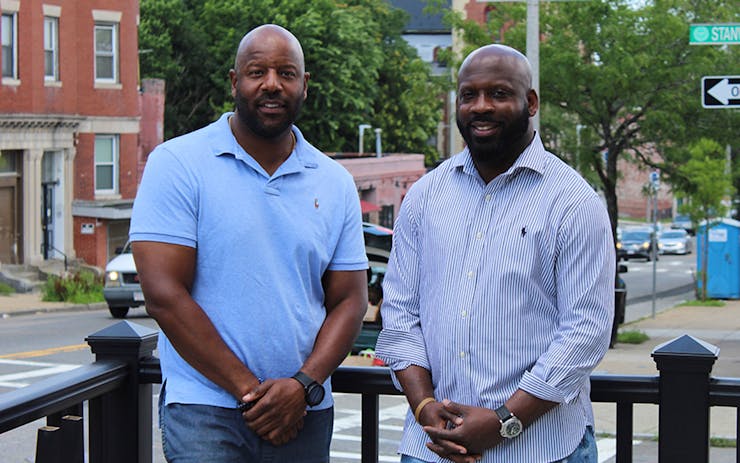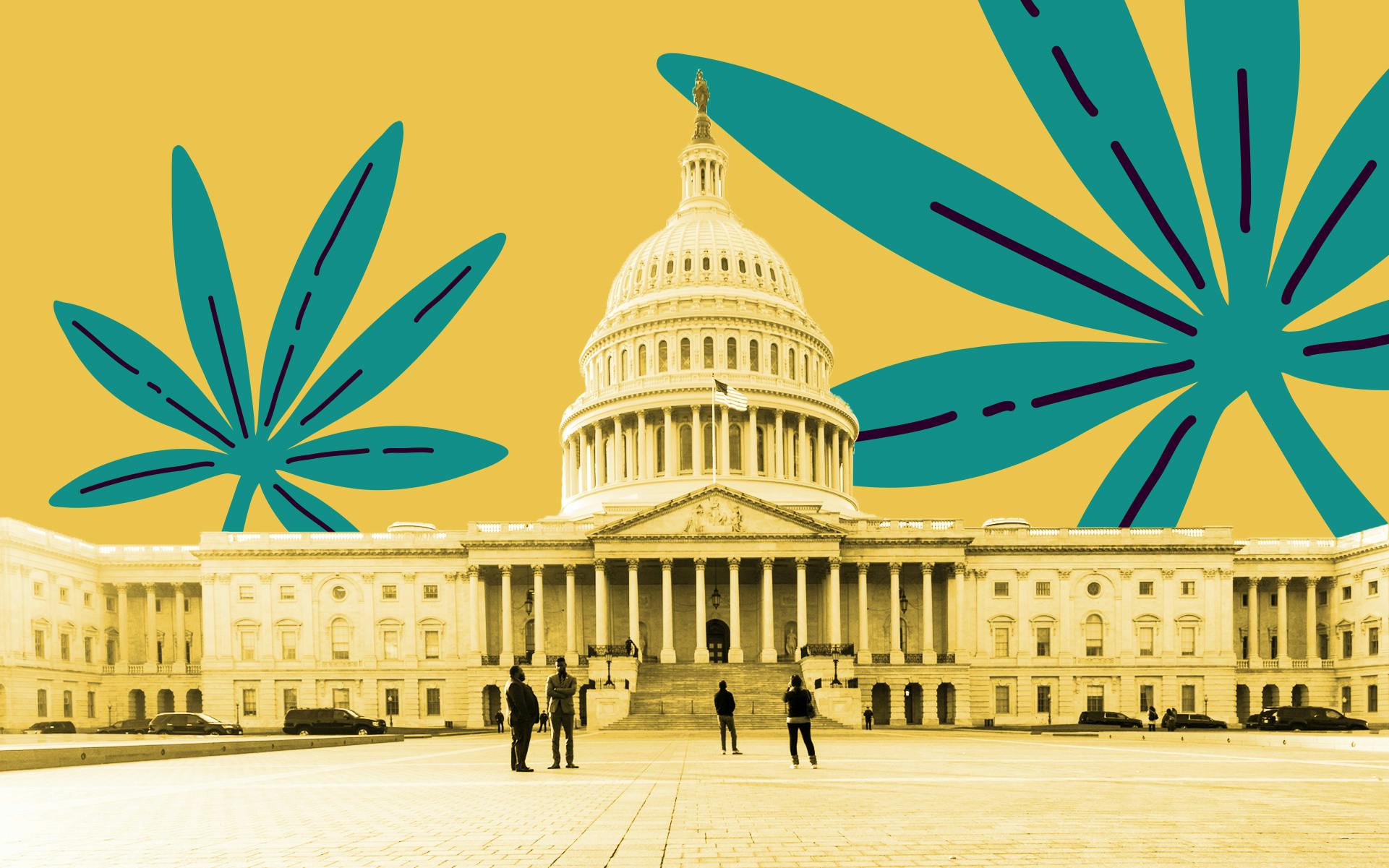When Massachusetts voters approved cannabis legalization in 2016, the lack of diversity in other state markets was already becoming clear. Earlier that year, BuzzFeed described the industry’s growth as “America’s whites-only weed boom,” noting that black people had largely missed out on legalization’s economic opportunities.
To counter that trend, Massachusetts became the first state in the nation to include a social equity program to shape its newly legal industry. The program includes provisions for training and technical assistance as well as priority license for people impacted by the war on drugs.
Rollout of the nation’s first statewide cannabis equity program, however, has been excruciatingly slow. Only last month did regulators issue the first retail provisional license under the state’s economic empowerment program, designed to give applicants an early shot at licenses. The Boston shop, Pure Oasis, is set to open in the Dorchester neighborhood in October.
Co-owner Kobie Evans praised the program in concept—”If you aren’t a person of color, you have no idea what the war on drugs did to certain communities,” he said—but added that the local approval process has caused significant headaches.
“There was an expectation that towns would embrace equity, because the ballot measure was pretty clear,” Evans said. Instead, they’ve become some of the state’s most frustrating hurdles to building an equitable industry.
Cities Seeing Green
To submit a state license application, an applicant first needs to secure what’s called a host community agreement (HCA)—essentially local approval for the business. These host communities can charge businesses so-called community impact fees, which by law can’t exceed 3% of a company’s annual sales.
Swarmed with applications, some municipalities got greedy. Local governments have pushed applicants to sign HCAs that call for higher-than-allowed fees, up-front payments to the municipality, and “voluntary” donations to various local organizations.
“There is a national game plan by the bigger companies to dominate 100% of the American space, to monopolize as much as possible.”
Because local governments handle the approvals individually, there’s been a variety of approaches—some better than others.
“Some cities have made a major public commitment to be leaders and develop an equitable process in both theory and practice. I see others being openly greedy,” said Shaleen Title, a member of the state’s Cannabis Control Commission. “Most municipalities are somewhere in the middle. They just want to do what’s right for their communities. Unfortunately, that often means they go with the most well-resourced, flashy applicant.”
Given that most equity applicants are of color, it could be easy to assume race is a factor in municipal negotiations. But Evans isn’t convinced local governments see black or brown so much as green. “I don’t think it’s racial at all,” he said. “It crosses racial lines. It’s just a matter of who has the political connections and what kind of donations you can make.”
Shop highly rated dispensaries near you
Showing you dispensaries nearDifficulties and delays caused by clearing the HCA hurdle can also increase costs, endanger business partnerships, and hurt efforts to secure financing.
“We had to turn away investors and, after we received the provisional license, more investors have contacted us,” Evans said. “Getting rid of the HCA requirement for economic empowerment applicants would attract more money.”
Improving the Process
Commissioner Title says the HCA winds are shifting. “As time goes by, we are seeing more of an emphasis on the fairness that voters wanted. I think everyone wants to see small and local businesses succeed,” she said. Two bills currently being considered by the state would strictly enforce the HCA limits and give the Cannabis Control Commission (CCC) oversight over the municipal approval process.
A separate proposal being considered by the Cannabis Control Commission would reserve all the state’s delivery licenses for equity applicants.
Evans applauds these efforts but suspects it will be hard for the CCC to re-engage entrepreneurs who’ve been discouraged by the process so far. Asked what measures he thought would help, he replied: “Unfortunately, I think it’s a moving target. It’s one of those things where you don’t know where the gaps are until someone exploits them.
“There is a national game plan by the bigger companies to dominate 100% of the American space, to monopolize as much as possible,” he continued. “They can exert political influence on a granular level, so city councils, mayors, local congressmen—everyone’s affected by the will of the bigger companies. The Massachusetts model is actually a boon for the industry. You don’t hear big companies complaining about Massachusetts. They love it.”
Evans is not all doom and gloom. He also recommended reforms, such as exempting equity applicants from the HCA requirements—a step he believes would create “a lot more parity” in licensing—and including provision that gives 80% of licenses to big companies and 20% to equity applicants for a certain number of years.
While some see big business as the enemy, Evans thinks big companies are essential to getting the industry—and equity—off the ground.
“The perfect program is one that recognizes the importance of big companies and the need for equity in the landscape. As long as we have these mutually exclusive groups—the big companies and the equity applicants—we’re always going to have this cat-and-mouse game.”










